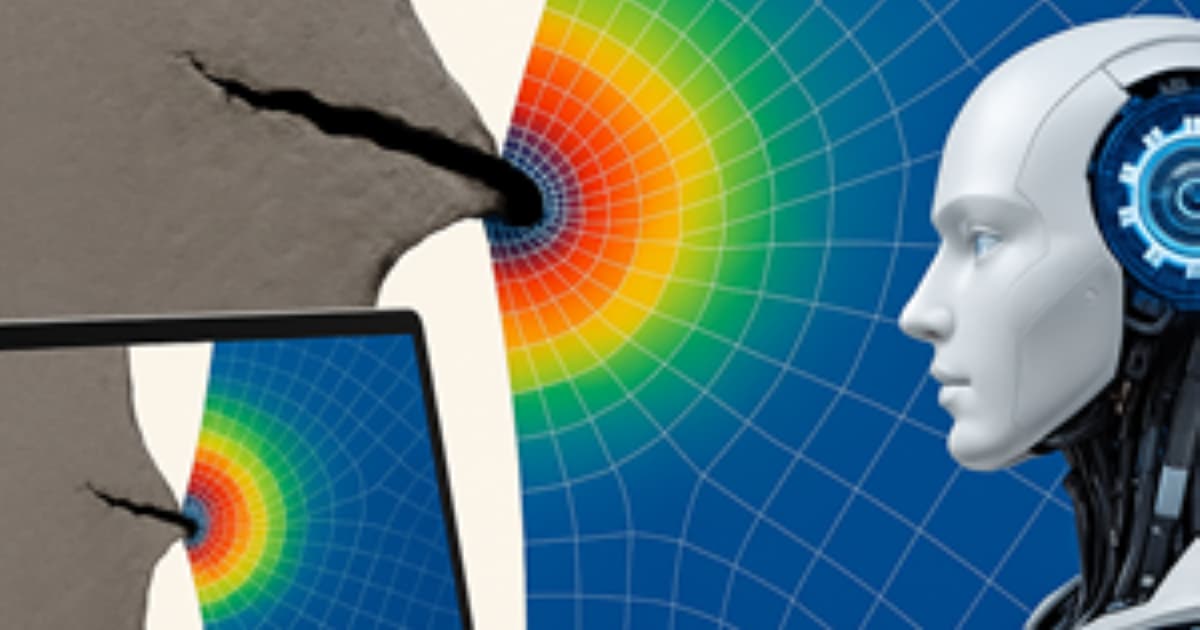State of the Art and Future Directions in Fracture Mechanics
A special issue of Applied Sciences (ISSN 2076-3417). This special issue belongs to the section "Mechanical Engineering".
Deadline for manuscript submissions: 31 December 2026 | Viewed by 141

Special Issue Editor
Interests: structural analysis; fracture mechanics; contact mechanics; computational methods; materials science; nanotechnology
Special Issues, Collections and Topics in MDPI journals
Special Issue Information
Dear Colleagues,
Fracture mechanics is a cornerstone of structural integrity, continually evolving to address the challenges posed by novel materials and complex loading environments. From its classical foundations, the field is now being reshaped by high-fidelity computational methods, advanced experimental techniques, and data-driven approaches. This Special Issue, "State of the Art and Future Directions in Fracture Mechanics," aims to capture this dynamic progress and highlight the groundbreaking research defining the next chapter of the discipline.
We invite original research and review articles that push the boundaries of fracture mechanics. Contributions are particularly encouraged on topics that bridge traditional theory with modern innovation. The integration of computational modeling with experimental validation is a key focus, as is the exploration of failure in emerging material systems.
This Special Issue calls for original, high-quality research articles that represent the current state of the art. While comprehensive review articles are also welcome, the primary focus is on presenting novel findings and significant methodological advancements that define the forefront of the field.
Topics of Interest:
This Special Issue seeks to publish high-quality research on, but not limited to, the following themes:
- Advanced Computational Frameworks: Phase-field modeling, peridynamics, extended/generalized finite element methods (XFEM/GFEM), and cohesive zone models.
- Cutting-Edge Experimental Mechanics: In situ mechanical testing (SEM, TEM, synchrotron), digital image correlation (DIC), acoustic emission, and other full-field measurement techniques.
- Fracture in Advanced Materials and Processes: Damage tolerance of additively manufactured components, progressive damage in composites and heterogeneous materials, and failure of architected materials and metamaterials.
- Data-Driven and Machine Learning Approaches: Surrogate modeling, crack path prediction, material property identification, and uncertainty quantification in fracture.
- Multiscale Fracture Phenomena: Micro- and nanoscale deformation and toughening mechanisms, and novel multiscale modeling techniques bridging atomistic to continuum scales.
- Digital Twins for Fracture Prognostics:Research dedicated to the development, updating, and validation of digital twin frameworks for predicting fatigue life, remaining useful life, and structural integrity.
Dr. Georgios I. Giannopoulos
Guest Editor
Manuscript Submission Information
Manuscripts should be submitted online at www.mdpi.com by registering and logging in to this website. Once you are registered, click here to go to the submission form. Manuscripts can be submitted until the deadline. All submissions that pass pre-check are peer-reviewed. Accepted papers will be published continuously in the journal (as soon as accepted) and will be listed together on the special issue website. Research articles, review articles as well as short communications are invited. For planned papers, a title and short abstract (about 250 words) can be sent to the Editorial Office for assessment.
Submitted manuscripts should not have been published previously, nor be under consideration for publication elsewhere (except conference proceedings papers). All manuscripts are thoroughly refereed through a single-blind peer-review process. A guide for authors and other relevant information for submission of manuscripts is available on the Instructions for Authors page. Applied Sciences is an international peer-reviewed open access semimonthly journal published by MDPI.
Please visit the Instructions for Authors page before submitting a manuscript. The Article Processing Charge (APC) for publication in this open access journal is 2400 CHF (Swiss Francs). Submitted papers should be well formatted and use good English. Authors may use MDPI's English editing service prior to publication or during author revisions.
Keywords
- fracture mechanics
- computational mechanics
- experimental mechanics
- additive manufacturing
- composite materials
- multiscale modeling
- phase-field modeling
- digital image correlation (DIC)
- machine learning
- in situ testing
Benefits of Publishing in a Special Issue
- Ease of navigation: Grouping papers by topic helps scholars navigate broad scope journals more efficiently.
- Greater discoverability: Special Issues support the reach and impact of scientific research. Articles in Special Issues are more discoverable and cited more frequently.
- Expansion of research network: Special Issues facilitate connections among authors, fostering scientific collaborations.
- External promotion: Articles in Special Issues are often promoted through the journal's social media, increasing their visibility.
- Reprint: MDPI Books provides the opportunity to republish successful Special Issues in book format, both online and in print.
Further information on MDPI's Special Issue policies can be found here.





